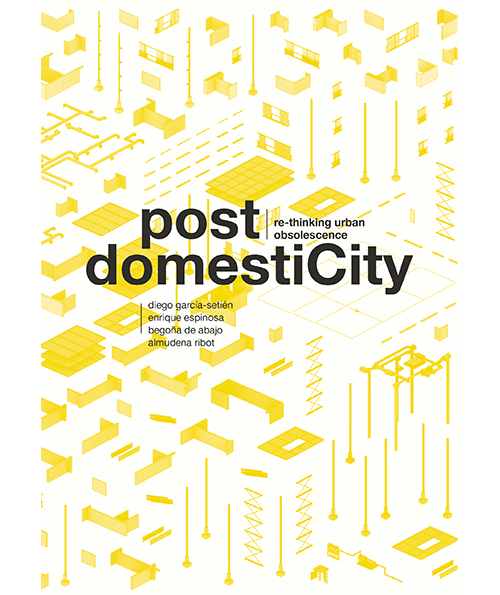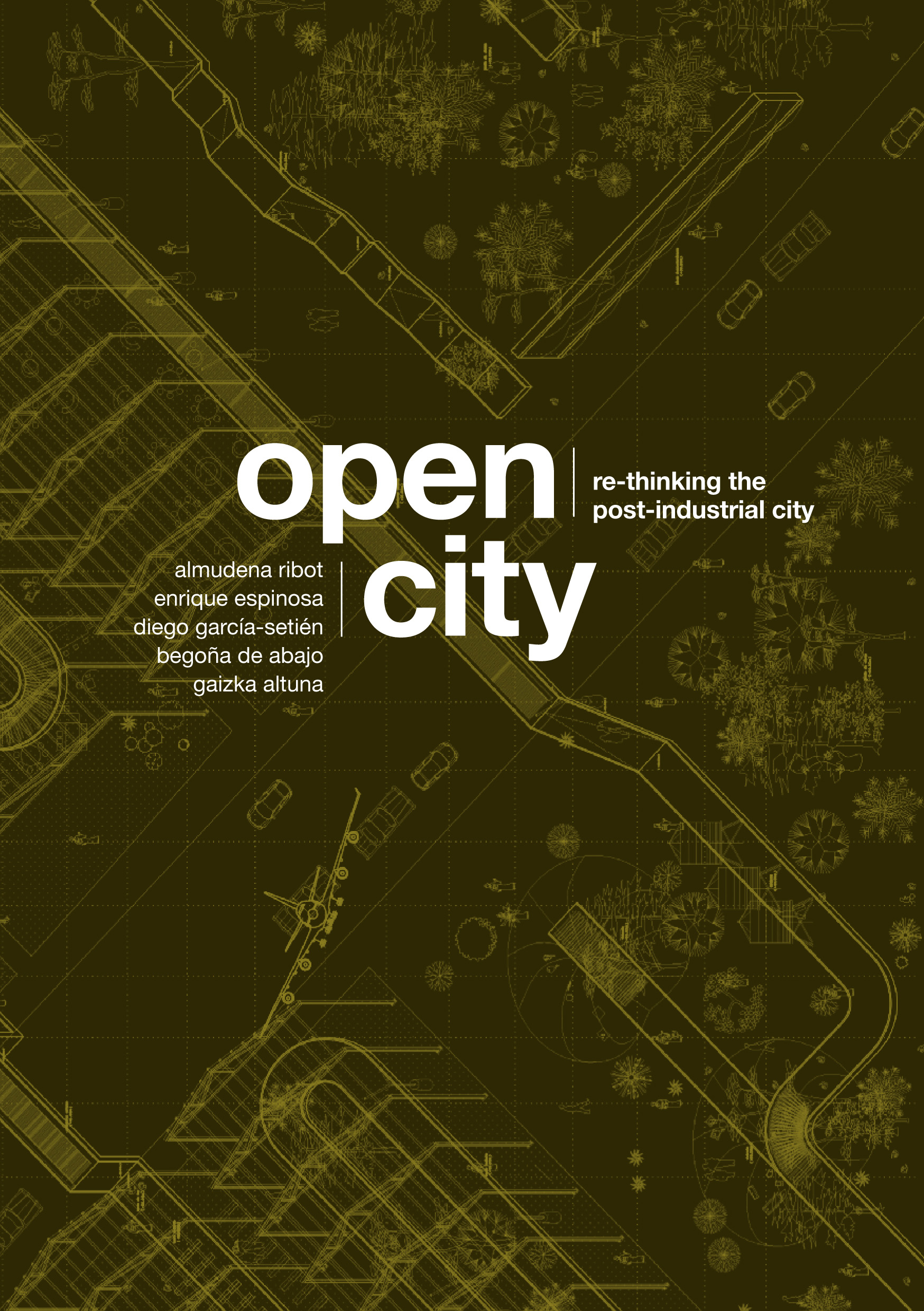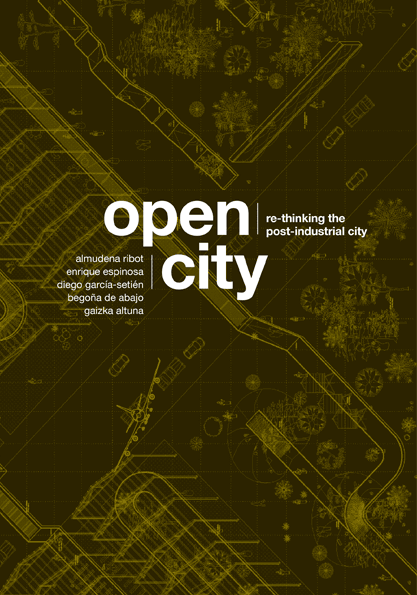
Post DomestiCity
Re-thinking urban obsolescence
Diego García-Setién, Enrique Espinosa, Begoña de Abajo, Almudena Ribot / CoLaboratorio
PostDomestiCity is an inquiry and speculative exercise into the conditions of obsolescence in the post-industrial city, from a contemporary perspective. Working with three paradigmatic cases that were conceived from industrial logics—the Packard plant in Detroit, Lima’s PREVI neighbourhood, and theGrand’Mare complex in Rouen—, we explore alternative ways of reusing, reprogramming, and redensifying the built environment as alternatives to demolition. Relevant voices in the field of architecture share their approaches and visions of the future for the pre-existing city, helping us imagine post-domesticity in the current climate crisis and socio-technological context. PostDomestiCity, along with Open Building 2.0 (CoLab, 2018) and OpenCity (Actar, 2020), forms another trilogy by CoLaboratorio, approaching and understanding architecture as a resilient support with enormous transformative potential over time.
With Contributions of
Anne Lacaton, Marina Otero, Ippolito Pestellini, Duplex Architects, Lacol, Antonio Vázquez de Castro, Carmen Espegel, Luis
29,00€
Buy Ebook 
Open City
Re-thinking the post-Industrial City / Re-pensando la ciudad postindustrial
Almudena Ribot, Enrique Espinosa, Diego García-Setién, Begoña de Abajo, Gaizka Altuna / CoLaboratorio
Currently 55% of the world's population lives in cities, predictably reaching 70% in 2050. Cities are organisms in continuous transformation: growth, change, but also shrinking or collapse. Open City explores and speculates from contemporaneity about the future of the post-industrial city, where industrial archipelagoes (S), frames (XL) and obsolete or deprogrammed singularities (M/L) represent critical contexts but also opportunities for a new Open City.
Open Systems have been the research focus of CoLab. This book collects some relevant and engagingly contemporary insights, including contributions by Andrés Jaque, Juan Herreros, Philipp Oswalt, Momojo Kaijima (Atelier Bow-Wow), Langarita Navarro or Cedric Price, among others.
EBOOK EDITION
24,00€
Buy Ebook 


